Tag Archive for: DevOps

7 habits for the most inefficient DevOps team possible
Join us to learn about the complex dynamics of DevOps practices and their impact on team efficiency. In this webinar, you'll gain insights into common challenges and misconceptions that could be holding your team back from achieving optimal performance.

DevOps vs. Platform Engineering: Another Trend or the Next Big Thing?
Platform engineering is more than just a DevOps trend: internal platforms increase efficiency for developers and focus on their needs, which also inspires project managers through higher productivity.

OpenTofu: Transforming Infrastructure as Code (IaC)
Discover OpenTofu, a revolutionary tool in the Infrastructure as Code ecosystem, designed to enhance flexibility, foster community-driven development, and integrate seamlessly with modern technologies.
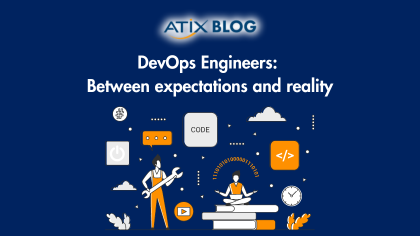
DevOps Engineers: Between expectations and reality
An article that looks at the misinterpretation of the DevOps Engineer role and its consequences. We shed light on how the true role of a DevOps Engineer as a bridge builder and communicator between teams promotes an open and transparent corporate culture.

Integrating IT-Security in the DevOps Universe
Join us for an insightful webinar that delves into the crucial integration of IT-Security within the DevOps framework.
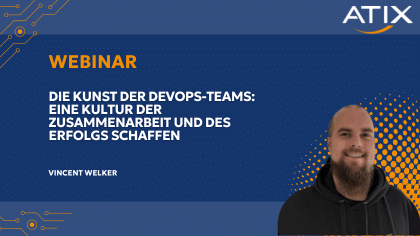
Die Kunst der DevOps-Teams: Eine Kultur der Zusammenarbeit und des Erfolgs schaffen
Das Verständnis des Zusammenspiels zwischen Teamdynamik und DevOps-Praktiken ist für jedes Unternehmen, das eine nahtlose DevOps-Transformation anstrebt, entscheidend.
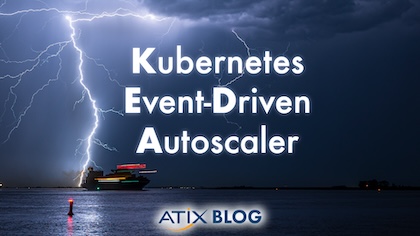
Scaling Applications to Zero with Kubernetes and KEDA
For cost reasons, it is often neither feasible nor desirable to assign enough resources to a deployment for it to be able to handle peak loads at all times. Therefore, we typically scale applications up and down based on the load they are currently facing. This usually involves a minimum number of instances deployed at any time, even if there is no load. This minimum can force us to keep more worker nodes in our Kubernetes cluster than necessary as the instances have an assigned resource budget. In this blog post, we will take a look at how to reduce the minimum amount of deployed instances to zero and discuss which kinds of applications benefit from that the most.
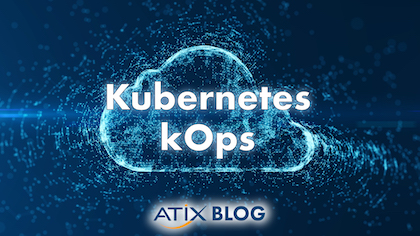
Kubernetes kOps
The cloud and Kubernetes belong together, right? More or less, this is the case. Although containerized applications quickly find a home environment with cloud providers, for some myterious reasons, it’s not that easy to set up a Kubernetes environment in the cloud. Unless you use kOps, the tool written exactly for this purpose. This is how it works.
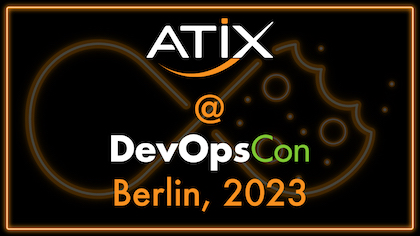
ATIX at DevOpsCon 2023: Berlin
This year, ATIX was part of the DevOpsCon in Berlin in June. Find out about our trip and impressions of the 2023 conference.
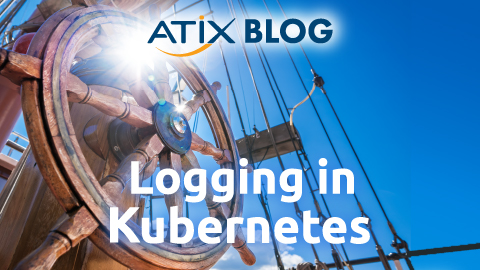
Logging in Kubernetes with Fluent Bit and OpenSearch
Logging primarily serves us to log processes within a program. We expect this to lead, for example, to better auditing, a faster error analysis, and, as a result, more robust programming. Today, we want to show you how to persist and visualize logs in a meaningful way with the right tooling.
Tag Archive for: DevOps

7 habits for the most inefficient DevOps team possible
Join us to learn about the complex dynamics of DevOps practices and their impact on team efficiency. In this webinar, you'll gain insights into common challenges and misconceptions that could be holding your team back from achieving optimal performance.

DevOps vs. Platform Engineering: Another Trend or the Next Big Thing?
Platform engineering is more than just a DevOps trend: internal platforms increase efficiency for developers and focus on their needs, which also inspires project managers through higher productivity.

OpenTofu: Transforming Infrastructure as Code (IaC)
Discover OpenTofu, a revolutionary tool in the Infrastructure as Code ecosystem, designed to enhance flexibility, foster community-driven development, and integrate seamlessly with modern technologies.

DevOps Engineers: Between expectations and reality
An article that looks at the misinterpretation of the DevOps Engineer role and its consequences. We shed light on how the true role of a DevOps Engineer as a bridge builder and communicator between teams promotes an open and transparent corporate culture.

Integrating IT-Security in the DevOps Universe
Join us for an insightful webinar that delves into the crucial integration of IT-Security within the DevOps framework.

Die Kunst der DevOps-Teams: Eine Kultur der Zusammenarbeit und des Erfolgs schaffen
Das Verständnis des Zusammenspiels zwischen Teamdynamik und DevOps-Praktiken ist für jedes Unternehmen, das eine nahtlose DevOps-Transformation anstrebt, entscheidend.

Scaling Applications to Zero with Kubernetes and KEDA
For cost reasons, it is often neither feasible nor desirable to assign enough resources to a deployment for it to be able to handle peak loads at all times. Therefore, we typically scale applications up and down based on the load they are currently facing. This usually involves a minimum number of instances deployed at any time, even if there is no load. This minimum can force us to keep more worker nodes in our Kubernetes cluster than necessary as the instances have an assigned resource budget. In this blog post, we will take a look at how to reduce the minimum amount of deployed instances to zero and discuss which kinds of applications benefit from that the most.

Kubernetes kOps
The cloud and Kubernetes belong together, right? More or less, this is the case. Although containerized applications quickly find a home environment with cloud providers, for some myterious reasons, it’s not that easy to set up a Kubernetes environment in the cloud. Unless you use kOps, the tool written exactly for this purpose. This is how it works.

ATIX at DevOpsCon 2023: Berlin
This year, ATIX was part of the DevOpsCon in Berlin in June. Find out about our trip and impressions of the 2023 conference.

Logging in Kubernetes with Fluent Bit and OpenSearch
Logging primarily serves us to log processes within a program. We expect this to lead, for example, to better auditing, a faster error analysis, and, as a result, more robust programming. Today, we want to show you how to persist and visualize logs in a meaningful way with the right tooling.


